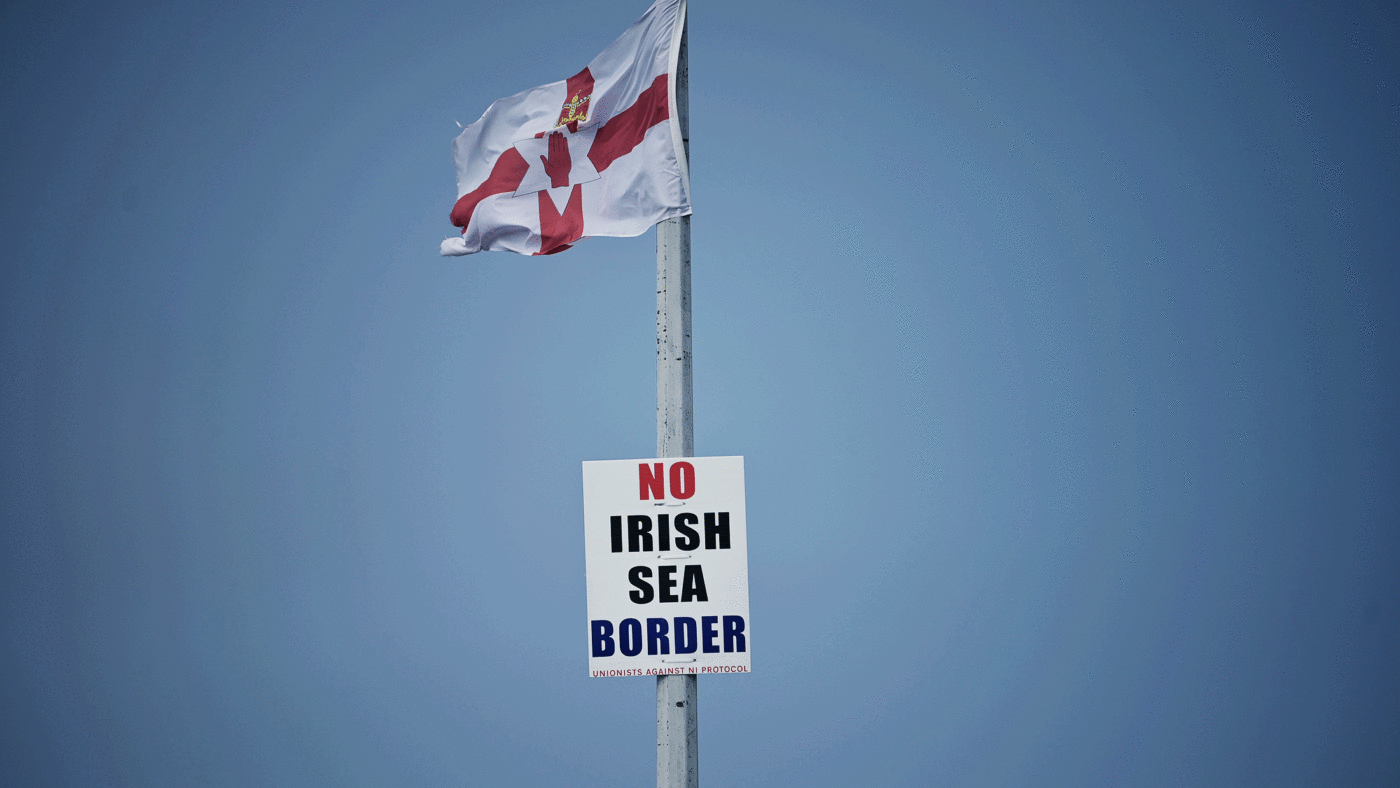Yesterday, Northern Ireland’s four explicitly unionist parties issued a ‘declaration’ affirming their opposition to the Northern Ireland Protocol. This statement was timed to coincide with the anniversary of ‘Ulster Day’ in 1912.
109 years ago, on the 28th of September, almost half a million people in the province expressed their commitment to a ‘cherished position of equal citizenship in the United Kingdom’ and showed their determination to resist Irish separatism, by signing the Ulster Solemn League and Covenant or the women’s Declaration. For that reason, the choice of date for the latest protest against the Irish Sea border has historical resonance.
Unionists believe the Protocol is the biggest blow to Northern Ireland’s place in the Union since at least the Anglo-Irish Agreement of 1985. And, arguably, the last time their British rights and freedoms were challenged so gravely was the Home Rule crisis of 1912-1914, when a Liberal government at Westminster attempted to impose an all-Ireland parliament against the will of a majority in Ulster.
Unionists still celebrate the people’s response, in the shape of the covenant. It was a statement of popular resolve and an appeal to London to be treated as a full part of the UK.
That the unionist parties of today are prepared to work together, and invoke a document that is an iconic part of their history, is a mark of the seriousness with which they are taking the Protocol. After all, only days ago, the Ulster Unionist Party (UUP) leader, Doug Beattie, expressed opposition to electoral pacts ahead of elections to the Northern Ireland Assembly, which will take place next year, if not before.
Mr Beattie, whose party currently has fewer MLAs at Stormont than the Democratic Unionist Party (DUP), wants to portray the UUP as a modern, socially liberal alternative to the DUP’s conservative unionism. He claims his opponents project a, ‘backward, protectionist, power-driven vision focused on self-preservation.’
In contrast, the DUP’s leader, Jeffrey Donaldson, said his ambition was to work with the UUP and the smaller Traditional Unionist Voice (TUV) to ensure, ‘we return as many pro-Union, anti-Protocol MLAs as possible.’
Elections to Northern Ireland’s devolved Assembly use the proportional Single Transferable Vote system, with multi-seat constituencies where voters rank their favoured candidates by preference. As a consequence, the province’s unionist parties do not necessarily need a formal pact to maximise anti-Protocol representation. They can ask their supporters to favour other pro-Union parties with lower-order preferences; a practice that has been widespread and relatively uncontroversial for decades.
This may be important, because, if (and only if) unionists record a disappointing result, Irish nationalists and pro-EU liberals in Northern Ireland are likely to cast the election as a referendum on the current arrangement with Brussels. The next Assembly is due to vote on whether to renew or withdraw from certain elements of the Protocol, in December 2024. By then, the arrangements will be so well established that it may be too late, but a strong showing from unionist parties would at least prove that there is an overwhelming consensus that the hated sea border must be removed.
In addition, there is the spectre of Sinn Fein becoming Northern Ireland’s biggest party, with the right to nominate its First Minister. This is mainly a symbolic problem for unionism, as the First and Deputy First Ministers share an office and their positions are, strictly speaking, co-equal. However, it would be traumatic and demoralising for the province to be led, even nominally, by a politician whose movement waged a sectarian terrorist campaign aimed at its destruction.
For political reasons, Northern Ireland’s smaller unionist parties may try to downplay the idea that they need to show a united front with the DUP ahead of the election. Indeed, there is a persuasive argument that unionism is stronger when it spans a range of social and economic perspectives.
Together, though, the DUP, the UUP, the TUV and the Progressive Unionist Party (PUP), represent every shade of unionism in Northern Ireland other than the Conservative Party. And, in truth, the small core of Tory activists in Ulster are as appalled by the Protocol as other unionists, even though they are torn between loyalty to the government and a desire for the province to be treated like the rest of the country.
In common with their counterparts in every other part of the UK, people who support the Union in Northern Ireland have differences of opinion when it comes to health, public finances, social change and, indeed, Brexit. But, as this declaration affirms, their ‘unalterable position’ is that the Protocol, ‘must be rejected and replaced by arrangements which fully respect Northern Ireland’s position as a constituent and integral part of the United Kingdom.’
Click here to subscribe to our daily briefing – the best pieces from CapX and across the web.
CapX depends on the generosity of its readers. If you value what we do, please consider making a donation.


